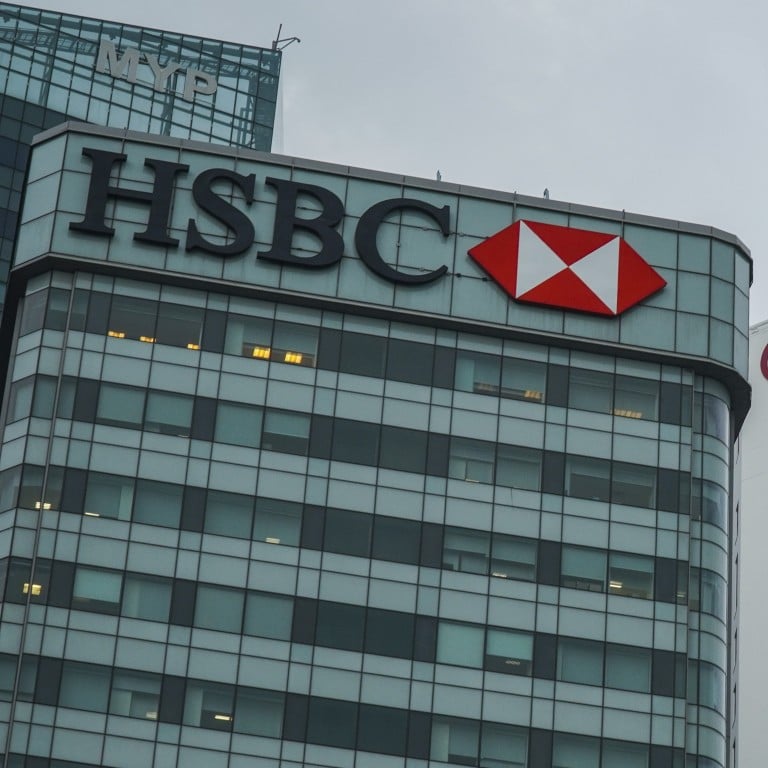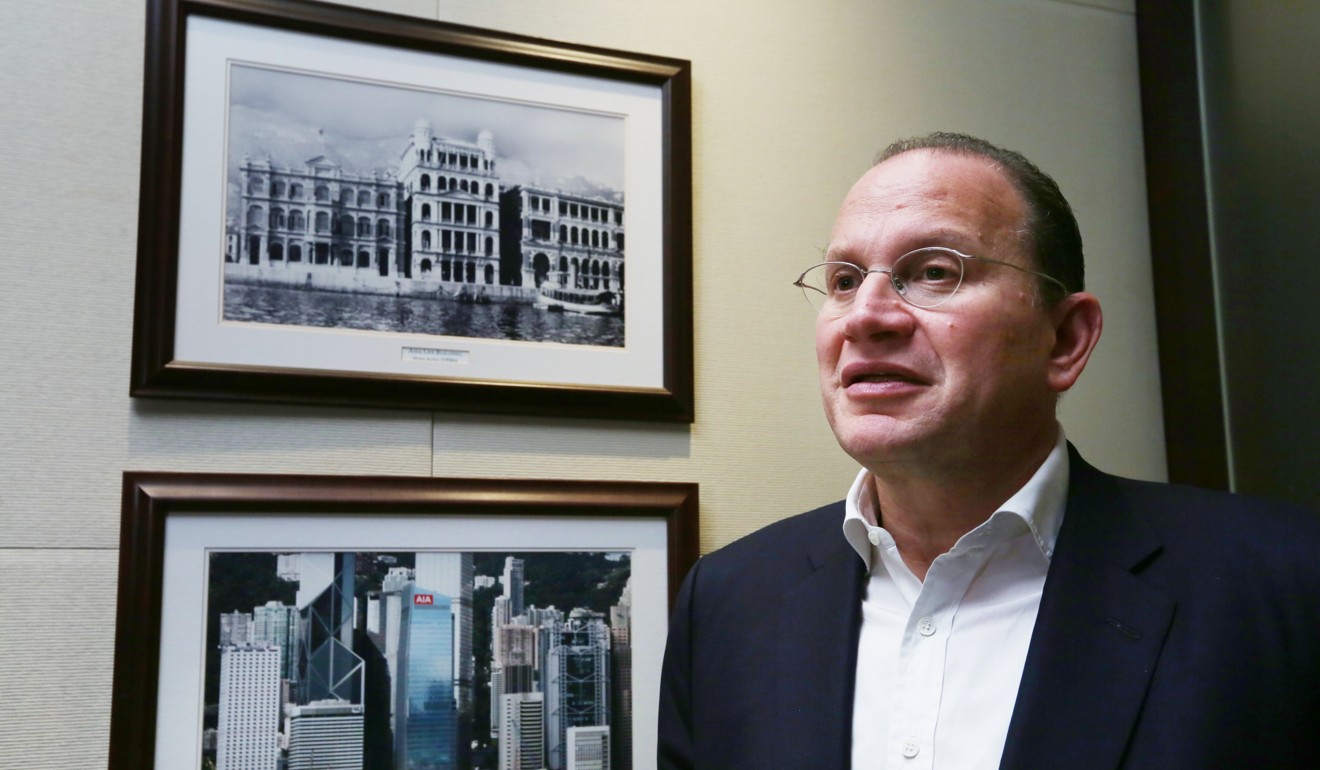
HSBC warns global growth is slowing, US-China trade war weighing on sentiment
- Trade war, Brexit leading to increased uncertainty, risk
- Slowing has yet to translate into higher credit losses at the bank
HSBC’s top leaders warned on Friday that global growth is slowing and continuing trade tensions, including a trade war between the US and China, are weighing on economic sentiment.
Chief executive John Flint said that “increased uncertainty and risk” in the global economy are related to rising protectionism, questions about the United Kingdom’s exit from the European Union – known as Brexit – and the future direction of interest rates.
“This is yet to translate into higher credit losses, but that could change if the global economy deteriorates,” Flint said at the bank’s annual meeting in Birmingham, UK.
“We will be proactive in managing costs and investment to meet any risks to revenue growth, but we will not take short-term decisions that harm the long-term interests of the business. We also have a business that is diversified, resilient and well-placed to navigate the risks inherent in today's world.”
US President Donald Trump has placed tariffs on about half of all goods imported from China as tensions have risen in the past year between the world’s two largest economies.
China and the US are continuing to discuss a trade agreement and moved a step closer earlier this week by agreeing to set up enforcement offices to monitor implementation of any trade pact – a key point for US negotiators.
HSBC, Europe’s largest bank, returned to a profit in the fourth quarter this year, but missed analysts’ expectations as challenging market conditions and a weaker economic outlook weighed on its results.
The bank, one of three authorised to issue Hong Kong’s currency notes, reported a profit of US$1.5 billion in the fourth quarter, compared with a loss of US$274 million in the fourth quarter of 2017.
Mark Tucker, the bank’s chairman, said that global trade remains subject to political pressure and continuing differences between China and the US, which “are likely to continue to inform sentiment through the rest of 2019.”
“We hope that the ongoing dialogue between Washington and Beijing has a positive outcome,” Tucker said.
“In the meantime, we are focused on helping our customers to navigate the present uncertainties and make the most of the opportunities that unquestionably exist.”

HSBC faced pressure on Tuesday from members of a UK shareholder campaign to end a practice where a deduction is made from the pension payout of some retirees who worked at Midland Bank and also receive a UK state pension.
Describing it as a “clawback”, campaigners said that the practice was “grossly unfair” and penalised lowest paid employees in the pension plan, primarily retired female employees.
It affects about 52,000 pension scheme members in the UK who received a payout based on their final salary, rather than contributing to a defined contribution plan.
The bank, which acquired full ownership of Midland in 1992, urged shareholders to reject a proposed resolution to abolish the clawback, saying that doing so would cost the lender £450 million (US$589 million) and doing so retrospectively would cost it “considerably more”.
We thought long and hard about this. We know this is a very important issue. We don’t take it lightly for one second
“We thought long and hard about this. We know this is a very important issue. We don’t take it lightly for one second. We know that many of the people involved devoted substantial portions of their working lives to Midland and then HSBC,” Tucker said.
“We have to be fair to all of these current and former employees, not all of these that would benefit if the state deduction ceased,” he said.
Separately, Flint, who became CEO last year after a career at the lender, said that he believed the bank was in a good position, but “there is still further room for improvement”.
As CEO, Flint has been tasked with trying to increase the bank’s profitability and growth.
“The strategy is working, I'm encouraged by our progress and I'm confident for the year ahead,” Flint said. “We remain focused on growing returns, meeting our return on tangible equity target by 2020 and creating value for you, our loyal shareholders.”

